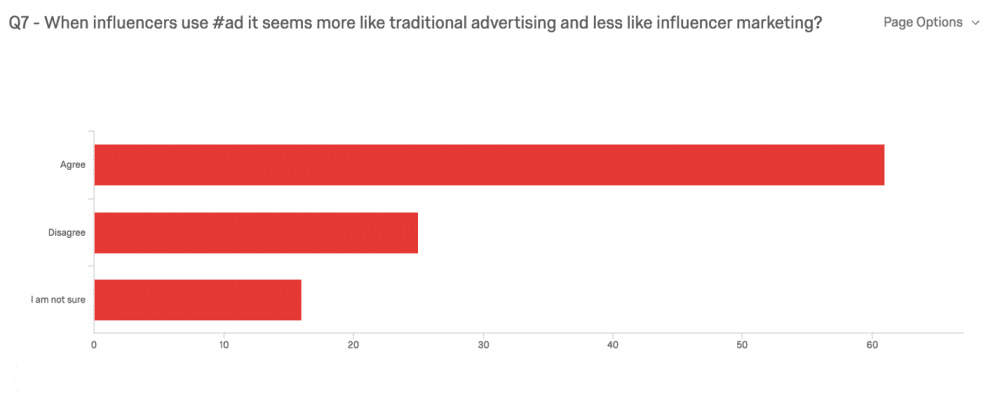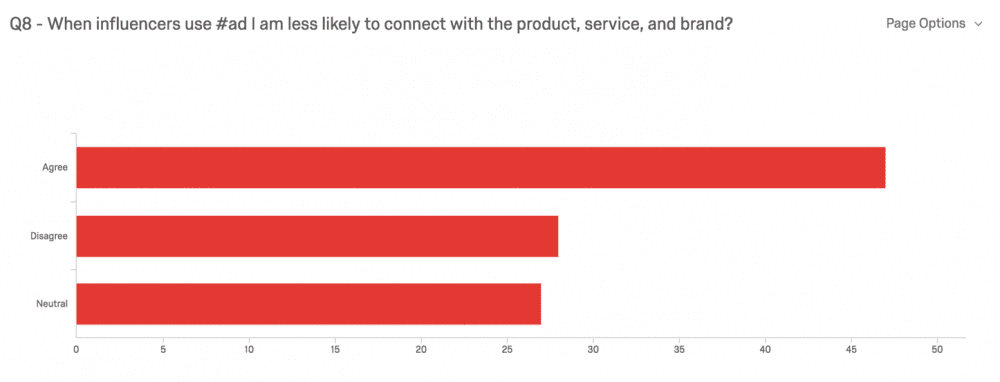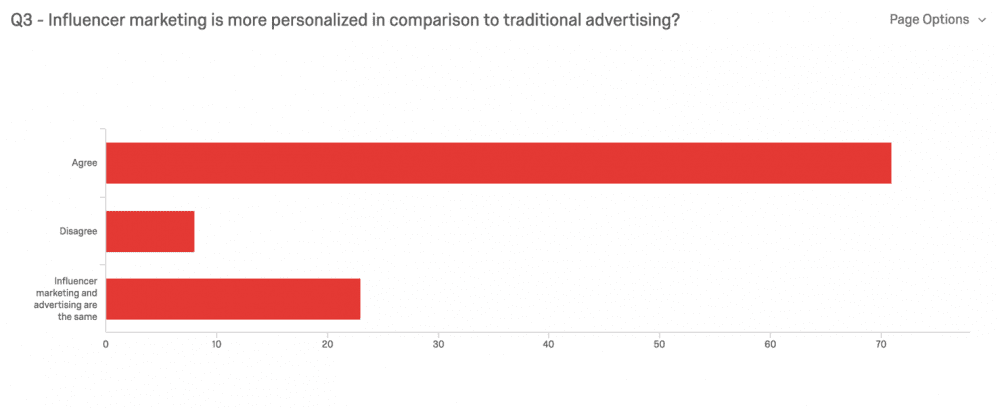
Public relations (PR) professionals must understand the nuances of our legal system when working on social media campaigns with influencers. Many consumers have been misled by influencers prompting the Federal Trade Commission (FTC) to enforce regulations to protect them. The FTC is a federal agency that enforces antitrust legislation to protect consumers.
According to FTC regulations, disclosure needs to occur whenever a company provides a third-party person with any form of compensation like gifts, money, and services. The guidelines also state hashtag #ad or #sponsored should be clearly placed in the first three lines of a social media caption. If influencers fail to comply with the disclosure methods, they risk being warned or fined thousands of dollars by the FTC. However, many PR professionals manage influencers without properly understanding how the regulations impact the industry.
FTC disclosure regulations may help solve one issue within influencer marketing but cause another. One way the FTC wants influencers to disclose their relationships with brands includes using hashtags like #ad or #sponsored. Requiring influencers to add hashtags protects consumers; however, consumers may be confused about whether the post is a regular social media post or an influencer marketing post. Without precise disclosure methods, consumers are unable to make well-informed decisions about products and services.
Using hashtags infringe on the authenticity of influencer marketing because the original purpose of the hashtag is to help social media users contribute, find, and share trending messages. Unfortunately, many social media users use hashtags for its true purpose and may not notice an influencer’s hashtags. This suggest unaffiliated users who are not influencers also tag brands and use hashtags. If there is no distinctive way to identify who received compensation for their post or who did not, then the purpose of the FTC disclosure method is ultimately defeated.
An online survey was sent to 105 consumers between the ages of 18-36. All participants indicated that they were heavy users of social media and answered nine survey questions about influencer marketing, and the FTC disclosure methods. The goal was to investigate how consumers perceived influencers on social media to ensure PR professionals managed influencers properly.
The study found that over 50% of consumers agreed that influencer marketing posts with #ad seemed more like traditional advertising and less like influencer marketing.

The research also discovered 45% of consumers are less likely to connect with a product when influencers use #ad. This data implies the FTC disclosure methods impact consumers’ perception of influencer marketing.

Brands compensating consumers and celebrities to post on social media altered the original purpose of influencer marketing. Influencers were once regular consumers who willingly shared information about brands and products. Anyone on social media can share information about brands, and most of us do without even realizing it.
Public relations professionals must combat these issues to properly manage influencers and create impactful campaigns. Currently, there is no other study that explores the FTC disclosure methods and how it impacts the PR industry. The data from this research helped create a roadmap to ensure PR professional successfully manage influencers.
- Learn Basic Social Media Laws
The public relations industry is becoming more integrated every day. As our society becomes attached to social media, government agencies will continue to enforce legislation to protect consumers. Being legally informed about social media marketing policies will prevent brands and PR agencies from being fined by government agencies.
- Understand the difference between traditional advertising and influencer marketing
Traditional advertising and influencer marketing are two distinct tools. Public relations professionals must understand the distinction to create compelling social media campaigns. This research suggests traditional advertising is a non-personal message, and influencer marketing is a personal message. However, they both can be used to promote a brand, service, or message.
One example of traditional advertising is the Pepsi ad with Kendall Jenner in 2017. Jenner did not have an authentic connection with Pepsi or their “Live for Now Moment Anthem” campaign. Unlike Pepsi, Nike collaborated with Colin Kaepernick—a social activist that sacrificed everything for what he believed in. Kaepernick personally relates to Nike’s brand messaging which is to “Just Do It”.

Most consumers believe influencer marketing is more personalized than traditional advertising. Specifically, 69% of consumers believe the key difference between advertising and influencer marketing is personalization. Public relations professionals should consider these insights when strategizing for influencer marketing campaigns on social media.
- Manage Influencers Social Media Post
Public relations professionals must use their legal expertise to manage influencers. The growth of influencer marketing has allowed many influencers to post on social media without proper disclosure. Most people on social media use hashtags, which makes it harder for the FTC to track whose an influencer or not. Overall, the lack of supervision from the FTC contributes to disclosure issues. Public Relations professionals should review each of their influencer’s posts to ensure it complies with the FTC.
- More Research
This research has a relatively small frame and only provides primal data about the FTC’s impact on consumers and PR professionals. We need more research to ensure the PR industry continuously evolves.
Implications for Public Relations
- Public relations professionals cannot properly manage influencers unless the FTC disclosure regulations methods are revised.
- If public relations professionals cannot properly manage influencers, then they may confuse or lose the trust of their consumers.
![]()
 Ketia Jeune graduated from New York University this spring with her M.S in Public Relations and Corporate Communications. Before attending graduate school, Ketia attended Florida State University, where she obtained her B.A in English Literature with two certifications in Emergency Management and Public Administration. Follow her on Twitter at @ketiajune.
Ketia Jeune graduated from New York University this spring with her M.S in Public Relations and Corporate Communications. Before attending graduate school, Ketia attended Florida State University, where she obtained her B.A in English Literature with two certifications in Emergency Management and Public Administration. Follow her on Twitter at @ketiajune.
Name: Ketia M. Jeune
Affiliation: Edelman
Position: Global Quality Coordinator



